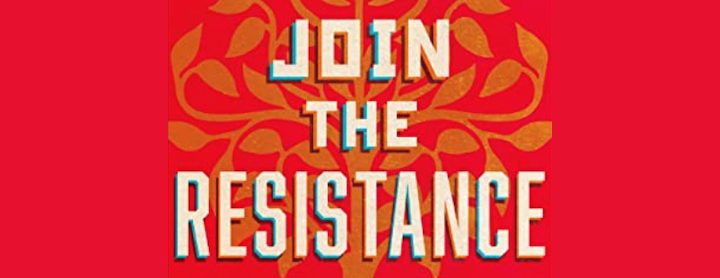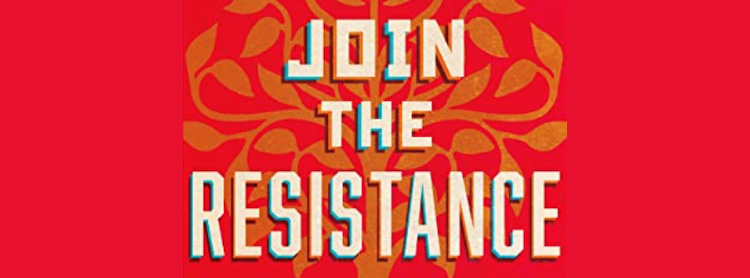Delving into the nitty gritty of faith-based community development and restorative justice work is neither a political expression nor a ministry distraction for the church, author and activist Michelle Ferrigno Warren said.
They are instead forms of biblically informed Christian advocacy practiced by Jesus and described in his telling of the parable of the Good Samaritan, she said during an Aug. 16 webinar hosted by Equal Justice USA’s Evangelical Network.
“Advocacy is not mission drift for the church.”
“Advocacy is not mission drift for the church. It’s the prophetic work of the church I’m talking about, that liberating work of honesty and truth-telling and working toward repair. It’s prophetic work and it can be the prophetic word from the church for every single moment in history,” Warren said.
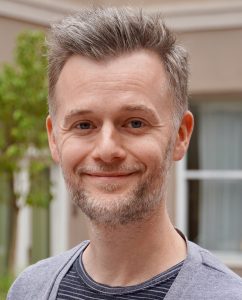
Sam Heath
Network Manager Sam Heath explained that part of EJUSA’s mission includes inspiring and equipping churches and individual Christians to join in the movement to bring healing to the nation’s criminal legal system, including advocating against mass incarceration and the death penalty.
“It’s important not to think about these things as problems to be solved, but as symptoms of other things,” he said. “So, we think punishment is at the root of our criminal legal system and under that is a fear-based response to the ‘capital-O Other’ that we have wanted to remove from society for all sorts of reasons. And yet, that is in conflict with so much of what we believe as Christians, especially the most repeated command in Scripture, which is, ‘Do not fear.’”
Warren, as a 30-year practitioner of faith-based community development, was invited to demonstrate how assessment of needs can translate into action for churches concerned about social and criminal justice issues, Heath said. “We really want anybody, but especially Christians, to think deeply about these things and move from a place of awareness to advocacy.”
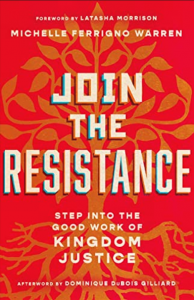 That kind of advocacy requires an all-in approach that engages the mind, heart and body, and a dedication to identifying and ministering to the root causes of injustice, said Warren, author of The Power of Proximity: Moving Beyond Awareness to Action, and Join the Resistance: Step into the Good Work of Kingdom Justice.
That kind of advocacy requires an all-in approach that engages the mind, heart and body, and a dedication to identifying and ministering to the root causes of injustice, said Warren, author of The Power of Proximity: Moving Beyond Awareness to Action, and Join the Resistance: Step into the Good Work of Kingdom Justice.
“I’m unapologetically and overtly rooted to the Christian faith,” Warren said. “When I move my body and my convictions and do whatever we need to do on behalf of justice, this is activism.”
The process also can involve a period of uncomfortable deconstruction as individuals and ministries reexamine their faith in relation to systemic suffering and injustice, she said. “They’re starting to bridge their awareness and ask questions like, ‘What am I supposed to do with the pain of the world? What am I supposed to do as a Christian?’ There can be a lot of disillusionment that comes of this.”
“If you are deconstructed and untethered to anything, this world is very windy with hurricanes and tsunamis and you will just be lost.”
The key to avoiding that cynicism or disenchantment is to make a commitment to emerge from the experience as more Christ-centered and advocacy-oriented institutions and people, she said. “Because if you are deconstructed and untethered to anything, this world is very windy with hurricanes and tsunamis, and you will just be lost.”
Continuing to identify as an evangelical also has inspired her commitment to advocacy because the movement’s theology — as opposed to its politically saturated culture — is rooted in following Christ’s example in Scripture, Warren said.
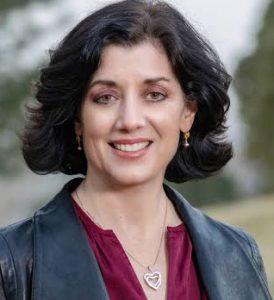
Michelle Ferrigno Warren
“I’m not so sure the evangelical culture knows the evangelical theology. But I am evangelical in my theology, which drives the practice of being a neighbor — a very powerful word in Scripture,” she said. “The second commandment is to love your neighbor as yourself, and that’s what Jesus was sharing when he talked about the story of the Good Samaritan. The parable of the Good Samaritan can move us from just the loving of mercy, to doing justice.”
Jesus gave another example of advocacy when he identified himself as the Prince of Peace and promised to share a peace unlike anything the world has to offer. “Then he invites us to join him in this work of what God has been doing since day one, which is pushing out darkness with light, and to join him in being the light of the world, to overcome darkness with light and to overcome evil with good.”
And that’s the definition of faith-rooted activism, Warren added. “We’re trying to figure out how to be neighbors, how to be people in the world and to be honest that maybe things aren’t so shiny, happy and at peace. We are willing to see the evil, hear the evil and speak the evil, and not run the other way.”

